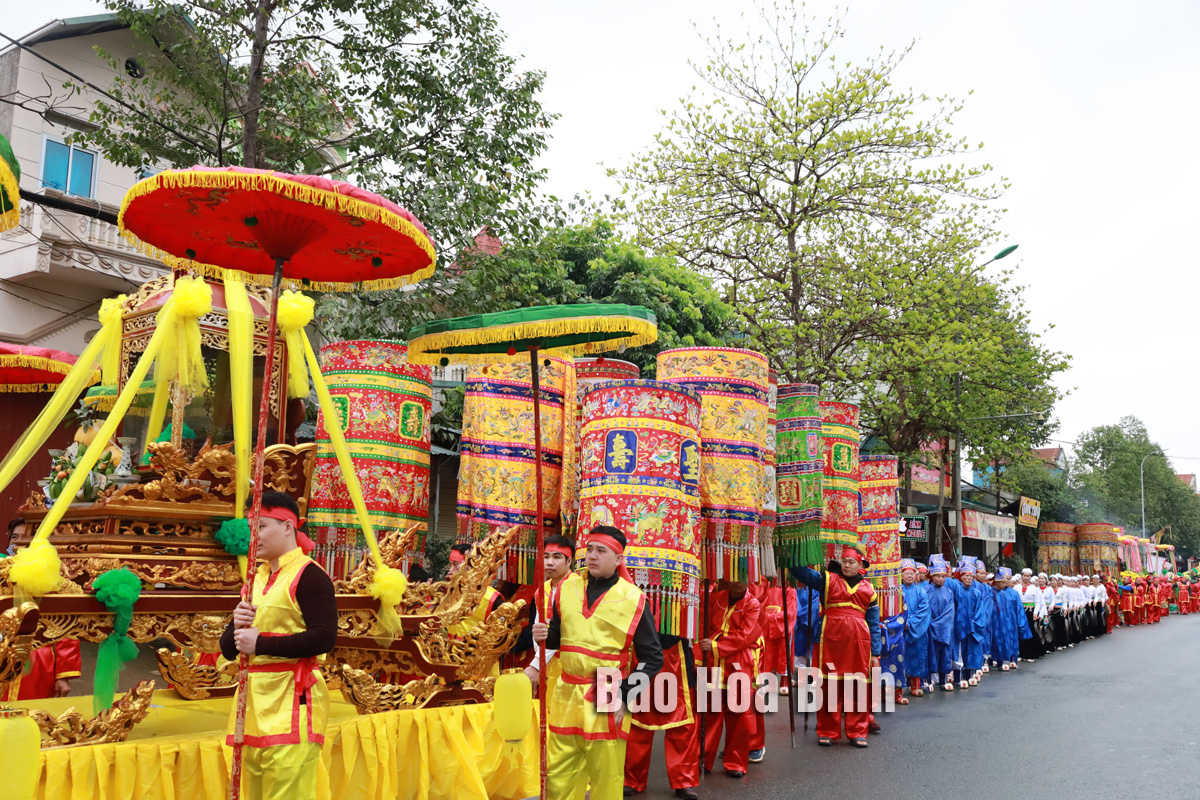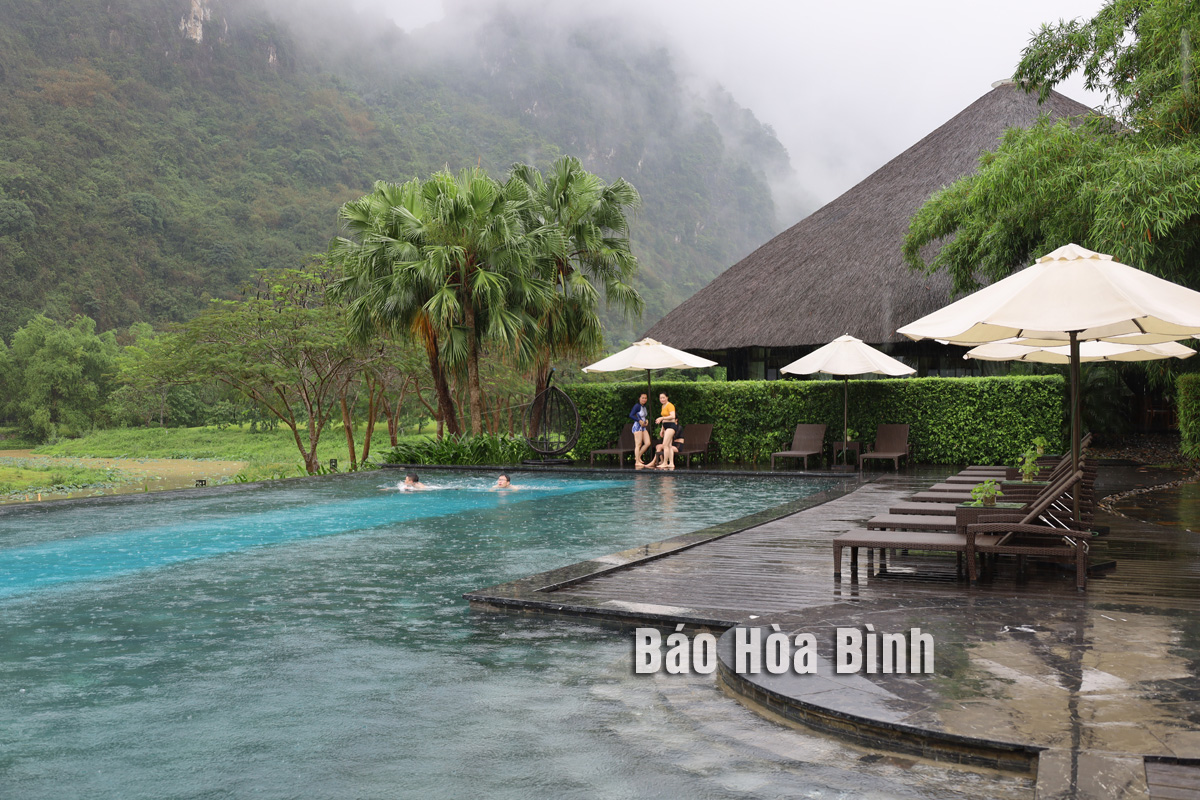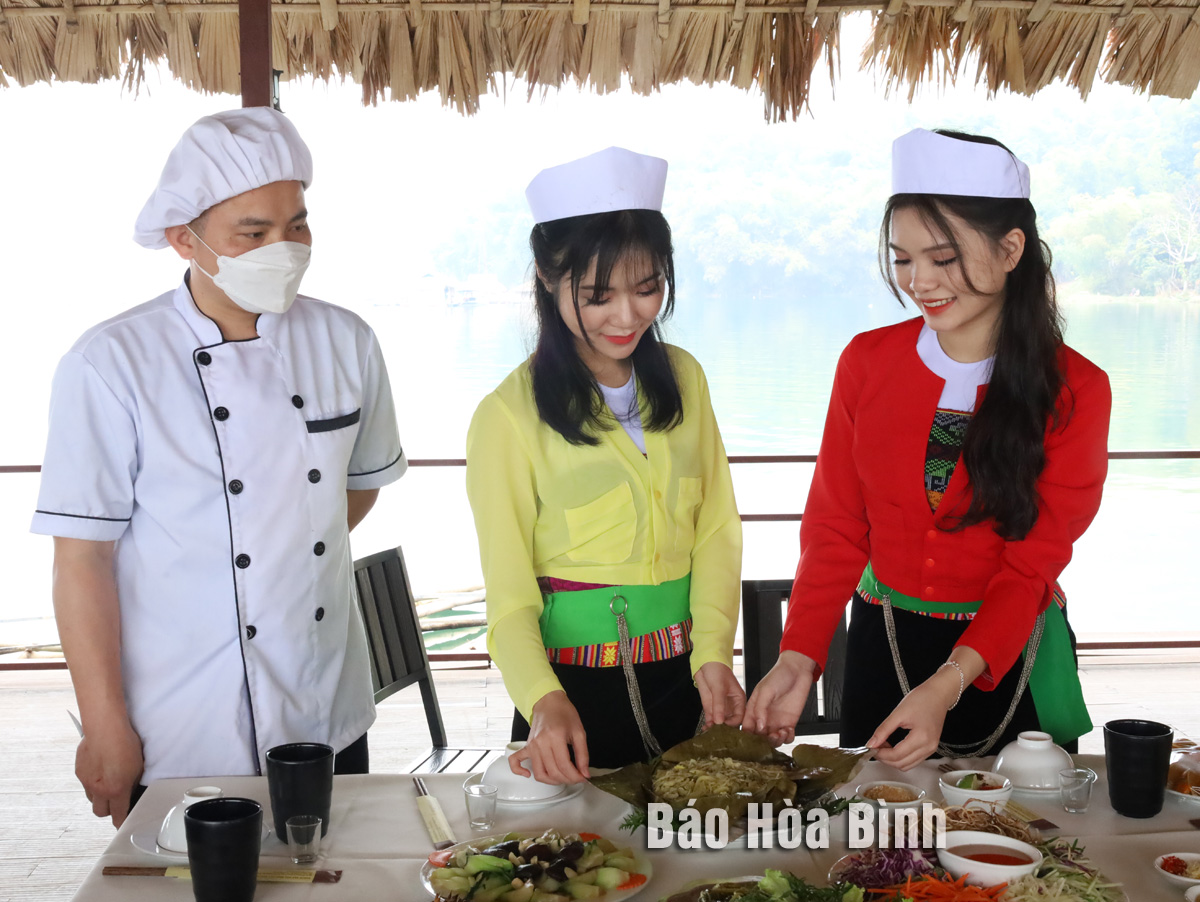
With its strategic location, well-developed transport network, and diverse soil and climatic conditions, Hoa Binh is emerging as a must-visit destination in Vietnam's northwestern tourism corridor. The province boasts numerous attractions, including the Kim Boi hot springs (Kim Boi district), the Dau Rong cave complex (Cao Phong), the Mai Chau valley (Mai Chau), and the iconic Hoa Binh hydropower plant.
The Dau Rong cave complex and
Bong Lai temple festival in Cao Phong district offer visitors an enchanting
spiritual and cultural tourism experience.
Hoa Binh is also home to a rich tapestry of
ethnic cultures from its Muong, Thai, Dao, Tay, and Mong communities, with
highlights including the renowned Hoa Binh Culture, Mo Muong heritage, and "De
dat – De nuoc (the birth of land and water)” epic, alongside distinctive
cuisine and abundant local specialties. Known for their revolutionary
traditions, resilience, hospitality, and industrious spirit, local people form
a key resource for developing diverse tourism models, particularly in
agricultural and eco-cultural-historical tourism.
The Serena Resort Kim Boi
capitalises on abundant hot mineral water resources in Kim Boi district to
offer premium wellness experiences.
The province is currently developing several
promising tourism models, such as homestays, spiritual and cultural tourism,
circular agriculture paired with experiential tourism, educational tourism
services, and e-commerce for tourism. Homestays, in particular, have gained
popularity among domestic and international travelers, particularly proven
effective when driven by collaborations between local households and
professional tourism companies.
Och fish soup with sour bamboo
shoots – a culinary staple of the Muong land – is a favorite among tourists
exploring the Hoa Binh Lake tourism site.
Hoa Binh also holds potential for entertainment,
sports, and adventure tourism. In today’s landscape, the industry benefits from
the Fourth Industrial Revolution, supportive government policies, and
opportunities to learn from successful models. However, challenges persist,
including limited access to financial resources, underdeveloped operational
skills, and an uneven ecosystem. Additionally, there is an absence of flagship
tourism models to lead the development of a cohesive and sustainable tourism
ecosystem.
To address these issues, Hoa Binh must increase
awareness of successful tourism models. Media outlets should implement
strategic, long-term promotional campaigns, while related training programmes
should focus on enhancing services management and operational skills. Moreover,
promoting new tourism routes and products through various channels is
necessary.
To translate its potential into reality, the
province should improve its business climate and competitiveness, ensuring a
balance among economic growth, cultural, social, and environmental development,
and defence-security maintenance. Prioritised investments should target
socio-economic infrastructure, eco-agricultural tourism, and the One Commune
One Product (OCOP) programme. It is also important to focus on branding,
e-commerce development, and the promotion of high-quality, innovative tourism
products, such as eco-agricultural experiences, educational farm tourism, and
wellness retreats that preserve and celebrate the province’s cultural and
natural charms.
A diverse chain of eco-tourism and resort destinations concentrated in Hoa Binh city and the districts of Tan Lac, Da Bac, and Luong Son… Along with the launch of several key high-quality resort tourism projects, these developments have reshaped the landscape and enhanced the appeal of Hoa Binh as a travel destination.
Boasting diverse terrain, a mild climate, and rich natural resources, Cao Phong district is increasingly asserting its place on Vietnam’s tourism map, attracting both domestic and foreign visitors. The district is renowned for its stunning landscapes, majestic mountains, a crystal-clear hydropower lake, and the unique cultural identity of local ethnic groups.
With its pristine landscapes, unique cultural heritage of Muong ethnic minority, and an expanding range of visitor experiences, Tan Lac district of Hoa Binh has fast become a captivating destination for both domestic and international tourists.
Until now, Sung village in Cao Son commune, Da Bac district remains the only Dao ethnic community in Hoa Binh province to develop a community-based tourism model. Beyond its untouched natural landscapes, cultural identity serves as the cornerstone attraction for visitors.
Alongside the diverse cultural identities of the Kinh, Muong, Tay, Thai, Dao, and Mong ethnic people, Hoa Binh province is also renowned as the "capital" of the northwestern Vietnamese cuisine, offering unique and distinctive dishes. At festivals, during Lunar New Year (Tet), or on significant family or community occasions, special dishes are prepared, leaving a lasting impression on visitors.
A Phong Linh (Yellow Tabebuia) flower garden in Thang village, Thach Yen commune, Cao Phong district is currently in full bloom, drawing a large number of visitors.





